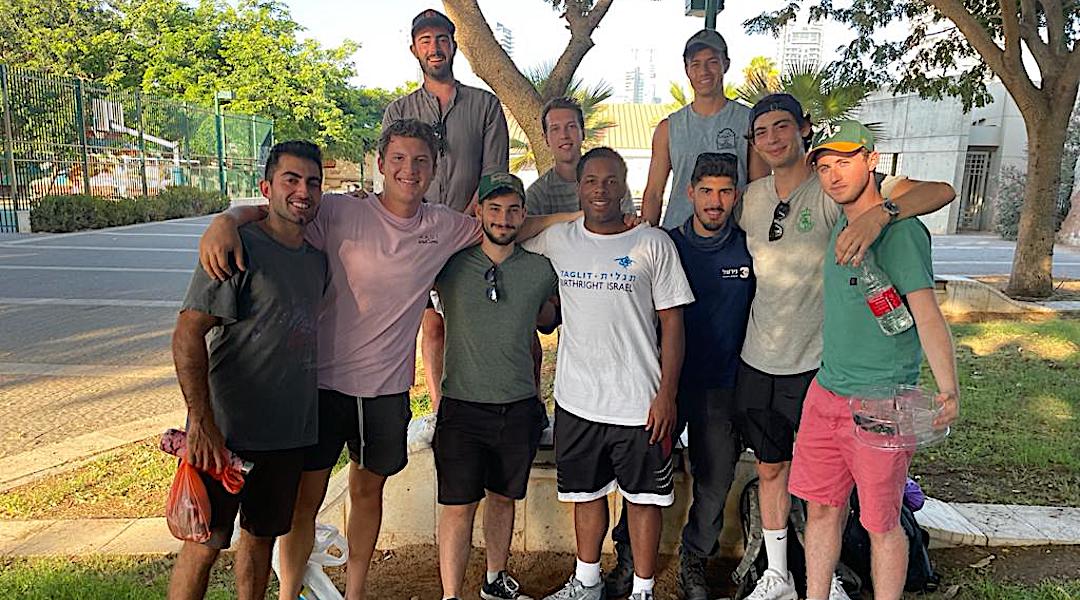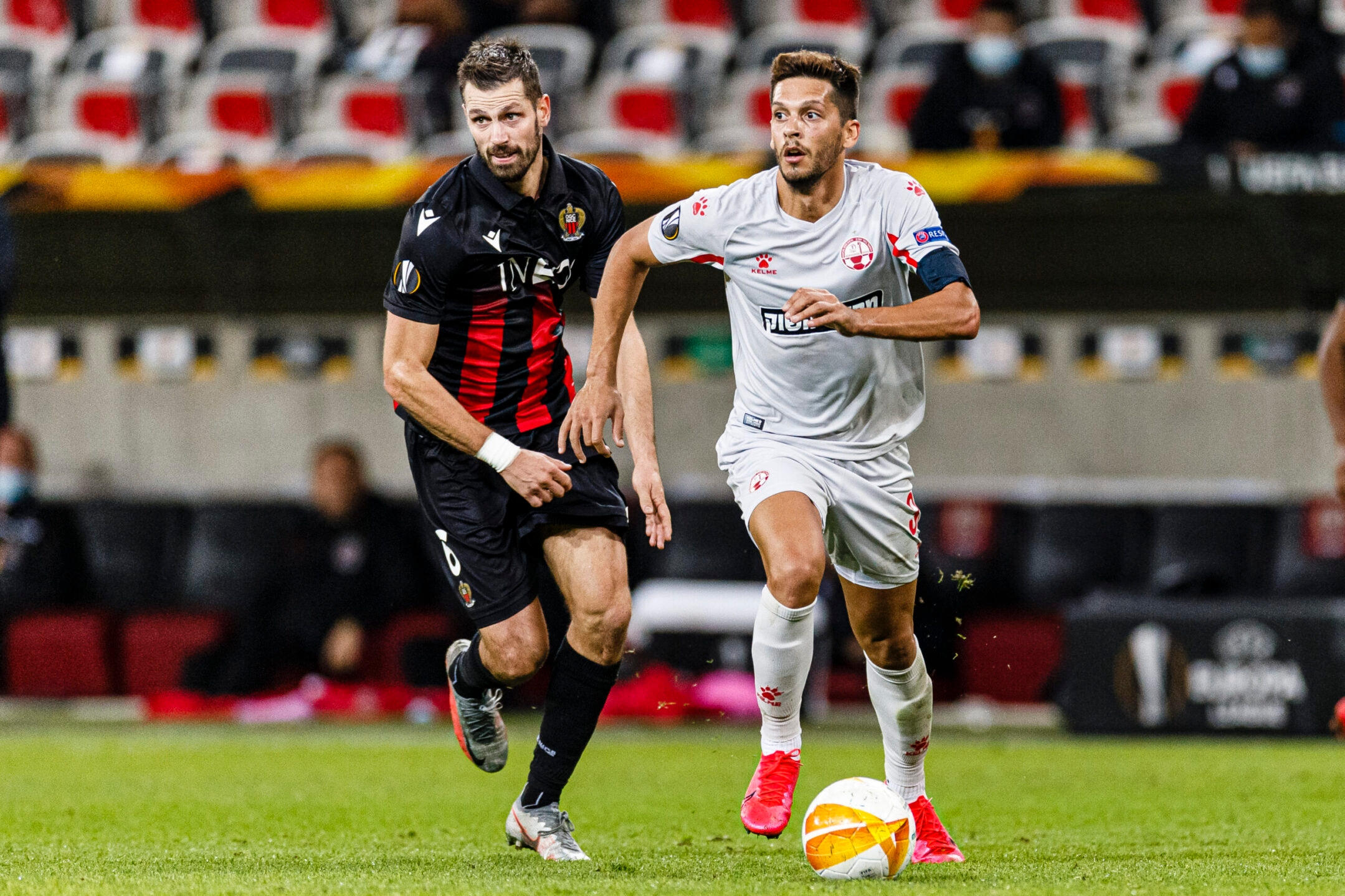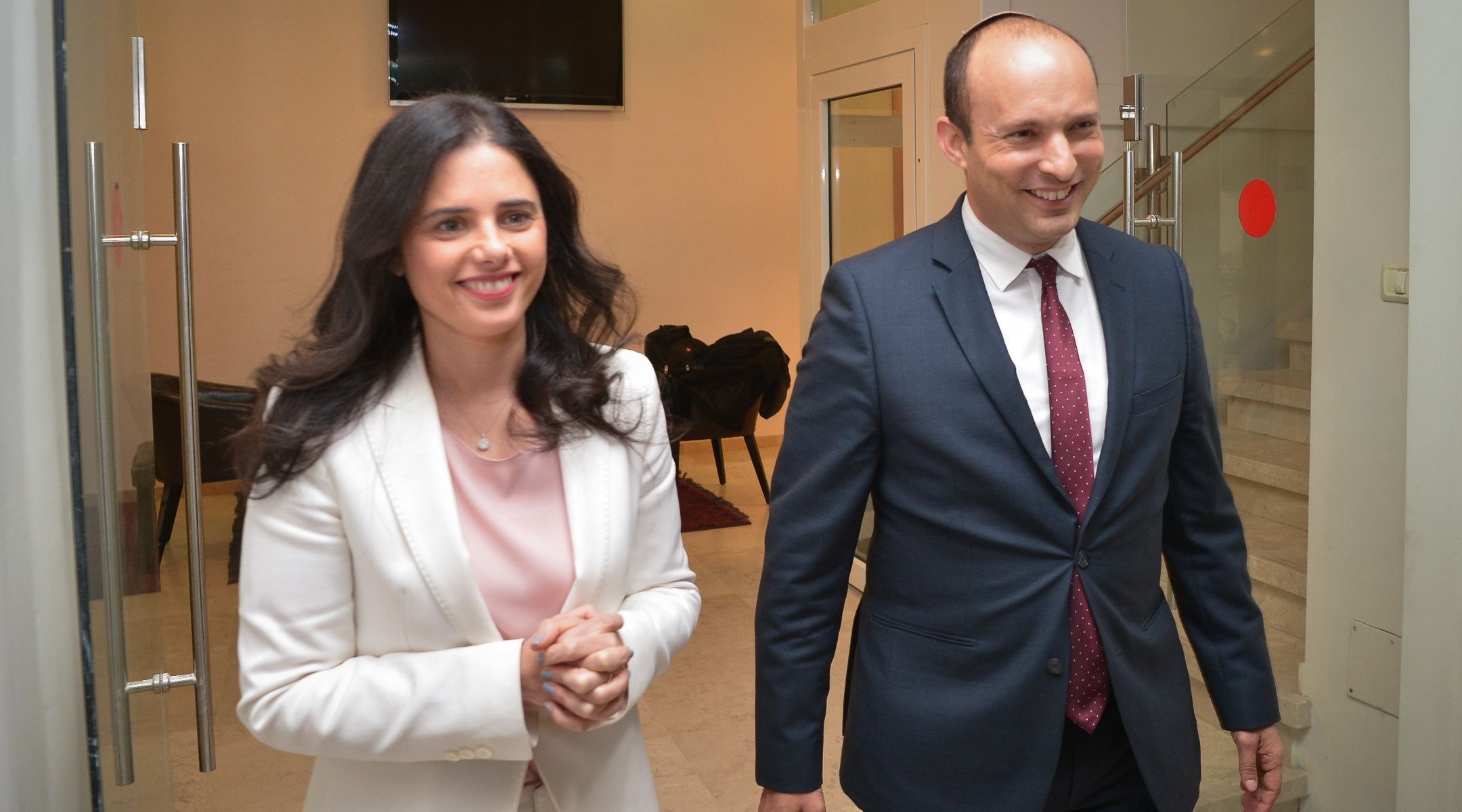(JTA) – Israel has granted a temporary residency to American basketball player Jared Armstrong, ending for now a months-long saga of multiple rejections, accusations of racism and petitions by influential people including an American investor and a rabbi with close ties to President Joe Biden.
Israel’s Interior Ministry, which handles citizenship applications, told the Jewish Telegraphic Agency of its decision Sunday, three weeks after Armstrong’s tourist visa expired and one week after the ministry announced it would be granting citizenship to Portuguese soccer player Miguel Vitor.
The decision by Interior Minister Ayelet Shaked to recognize Vitor as a citizen, allowing him to play for Israel’s national soccer team with the backing of the Israeli soccer federation and the ministry of culture and sports, had proven controversial.
Israeli media questioned why one athlete had received preferential treatment while Armstrong, who was raised Jewish and underwent a formal conversion as part of his citizenship bid, had seen his case drag on with no resolution.
Armstrong had appeared on Israeli television last week the day before Yom Hazikaron, Israel’s Memorial Day, to press a case he had advanced any way he could over the preceding months. He told JTA Monday that he remains optimistic about securing citizenship in the future.
“It’s been very stressful, a complete rollercoaster,” Armstrong said. “But I feel OK that I’m one step closer to receiving citizenship.”

Jared Armstrong (center) with other participants on a Birthright trip to Israel in 2021. (Courtesy of Jared Armstrong)
Armstrong’s rabbi, the Wilmington, Delaware-based Michael Beals, had a more pessimistic view of the situation, lambasting Shaked for failing to grant his charge full citizenship.
“I’m afraid the minister’s temporary residence decision makes Jared dependent on the state for welfare and support as the basketball teams who want him cannot employ him,” Beals told JTA. “I’m appalled — not grateful! I fear there is no accountability in Israeli political governance.”
Beals said that Shaked “must do teshuva [repentance] now and grant Jared the full Israeli citizenship his case deserves. Immediately.”
For now, temporary residency will allow Armstrong, a Philadelphia native and former college ball player for Slippery Rock University, to live and work legally in Israel. Temporary residency in Israel is valid for three years, with the option to renew for an additional two.
But whether Armstrong will be able to accept an offer to play for the Israeli club basketball team Hapoel Haifa is unclear.
Local rules strictly limit the number of non-Israeli players that teams can include on their rosters. So foreign athletes often apply for citizenship — and, because Israel’s immigration policy demands proof of Jewish ancestry or a recognized conversion process for citizenship, many convert to Judaism as part of the process.
Armstrong’s conversion has not been recognized by Israeli authorities. As recently as May 1, the same day Vitor’s conversion was accepted, Shaked’s office told JTA, “Armstrong’s conversion does not meet the criteria in Israel.”
Armstrong was raised Jewish by a mother whose conversion is not recognized by any of the major Jewish denominations, so he underwent a formal conversion as part of his bid to move to Israel.
In denying his citizenship bid, the Interior Ministry claimed he was only trying to convert so that he could play basketball — a charge that Armstrong emphatically denied in a JTA op-ed.
“Not for once did I ever think someone doubted my identity among the Jewish people. My mom and community taught and raised me as a Jew,” he wrote. “Instead of treating me like a Jew wanting to come home, they [the ministry] regard me as an infiltrator trying to take part in something that I have no right to.”

Miguel Vitor of Hapoel Be’er Sheva, right, is chased by an OGC Nice player during a match in France, Oct. 29, 2020. (Ricardo Nogueira/Eurasia Sport Images/Getty Images)
One wrinkle in Armstrong’s conversion was that Beals is affiliated with the Conservative movement. Israel’s Supreme Court has ruled that Israel is required to grant citizenship to non-Orthodox Jewish converts, but the country’s religious leadership has resisted that ruling.
Israel also challenged the conversion in part because Armstrong had studied online during the pandemic.
Beals, who is often referred to as “Joe Biden’s rabbi” because of his close connections to the president, had accused the Israeli government of being “racist” in its handling of Armstrong’s case. Armstrong is Black, and Israel has an inconsistent history in deciding on citizenship cases involving Black Jews.
Beals questioned why Israel would want “to reduce a proud young Jewish African-American man to dependency through a decision of temporary residency.” (Beals will be delivering a prayer for the state of Israel Thursday alongside Mike Herzog, Israel’s ambassador to the United States, at the U.S. Embassy in Washington, D.C.)
Armstrong used Joey Low — a well-connected intermediary, American venture capitalist and major investor in Israeli startups — to facilitate a Feb. 28 meeting with a member of Shaked’s staff. Low has also been a fierce advocate for African migrants in Israel, speaking out against the country’s deportations of tens of thousands of refugees.
In WhatsApp voice messages reviewed by JTA, that staffer told Low that a decision would be made on Armstrong’s application for citizenship within the month. Instead, it took more than two months to reach a temporary resolution.
During that time, Armstrong stayed in a Tel Aviv hostel under a tourist visa, kept a regular training regimen in a local gym and used a GoFundMe to help cover his expenses, as he was legally prohibited from finding work in the country.
“My life is in complete standstill,” Armstrong had told JTA prior to the ministry’s ruling. “I’m ready for this to be over.”
In his own citizenship application, Vitor underwent an Orthodox conversion within Israel. In a tweet announcing his citizenship, Shaked noted another aspect of his story that may have worked in his favor: “His wife, by the way, works in the foreign media and fiercely defends Israel.”

Naftali Bennett and Ayelet Shaked in Tel Aviv in 2018. (Yossi Zeliger/Flash90)
Armstrong isn’t the only athlete to have encountered immigration hurdles to play in Israel. Pedro Galvan, an Argentine soccer player who played for Tel Aviv’s club team for 10 years, was deported along with his family in 2019 after being cut from the team. He also saw his own application for citizenship denied by the Interior Ministry.
In the aftermath of the Vitor decision last week, Boris Klaiman, an Israeli soccer player who currently plays for a Greek club team, questioned why the outcomes for Vitor and Galvan had been so different. “Why [was] Miguel Vitor [a] yes and Pedro Galaban and his four daughters who grew up in Israel were deported?” Klaiman asked in an Instagram post.
Armstrong and his supporters also cited another recent high-profile citizenship case, that of Russian oligarch Mikhail Prokhorov, in their public appeals. Prokhorov, Russia’s 12th-richest man and onetime owner of the Brooklyn Nets, recently flew to Israel on his private jet, where he applied for and received citizenship in a manner of days, based on the ancestry of his Jewish grandmother.
JTA has documented Jewish history in real-time for over a century. Keep our journalism strong by joining us in supporting independent, award-winning reporting.






